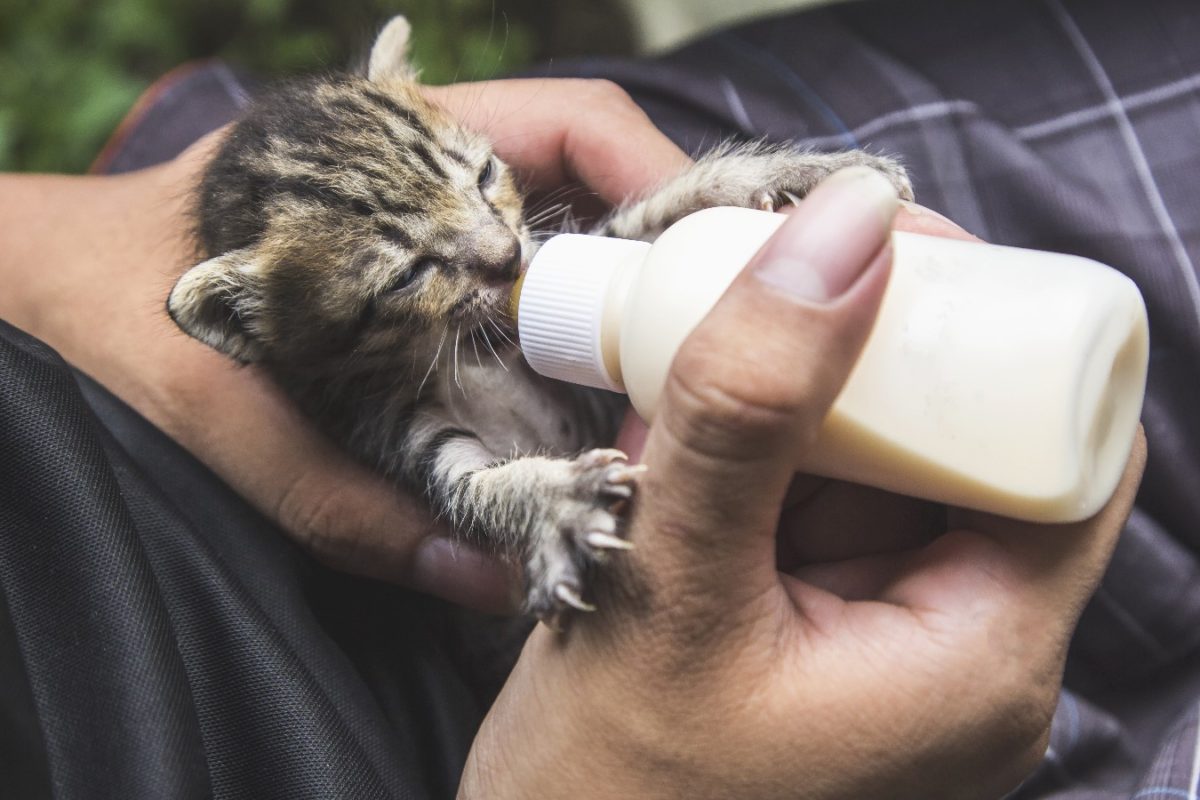Everything, Cats, Health care, Pet Care, Training
Kitten Care
She runs. She chases. She leaps. She pounces. When her little body has had enough, she suddenly sleeps. After all, this new member of your household is just a baby.
Taking care of a new kitten is a small challenge and a great joy. Kittens have rapidly changing bodies and inquisitive minds, and they’re learning how to interact with the world. The care you provide for your kitten will affect her for the rest of her life.
Preparing your home for a new kittenKittens will play with anything that moves or is movable. They also like to climb. They can destroy your furniture and injure themselves or die if they fall out of a window or off a balcony. The following Odor Destroyer articles provide tips on protecting your possessions and your pet:
- How to Pet-Proof Your Home How to look at your home from a kitten’s or puppy’s point of view and make your home safer for them
- When Your Cat Scratches the Furniture How to prevent kittens and cats from scratching your furniture, and advice on scratching posts
Your kitten will need her own food and water dishes and fresh water at all times. You can get her a cat bed, but most likely she’ll just sleep wherever she wants to that isn’t out of bounds.
If your kitten has just been separated from her mother, a heated water bottle under her blanket may help her sleep for the first few nights. It will provide the warmth that she’s accustomed to from sleeping with her mother and littermates.
Kittens and socializingHelp your kitten bond with humans as early as possible. Pet her, scratch her, brush her, play with her, and let her sleep on your lap — but don’t try to restrain her unless you need to. If there are children in the household, teach them how to handle the kitten and to respect her space.
If your kitten learns to trust you at an early age, her social interactions with humans for the rest of her life are likely to be positive.
Health care for kittensYour new kitten is probably healthy, but don’t wait until she has problems before taking her to your veterinarian. At your kitten’s first check-up, your veterinarian can assess her health, look for risk factors, and advise you on kitten health care and preventive measures.
Between four and six months used to be considered the best age to neuter kittens, but some veterinarians now recommend doing this procedure earlier. Your veterinarian can provide advice on this as well.
Nutrition for kittensKittens are growing animals with different nutritional needs than adult cats. Until your kitten is about 10 months old, choose pet foods that are labeled as having a nutritional balance suitable for kittens.
Up to the age of about six months, kittens have small stomachs. Feed them several times a day or make sure that they have dry food available between feedings of canned food.
Food for people doesn’t provide the nutritional balance that kittens need. Without the right nutrition, kittens don’t grow as fast, their bones and muscles may not develop properly, and their resistance to disease is reduced. In addition, nutritional imbalances contribute to some diseases.
Kittens and house-trainingYour kitten probably learned to use a litter box when she was still with her mother. If she didn’t, she’ll learn fast if you show her where the litter box is. Kittens and cats instinctively want to bury their waste. If she doesn’t start using the litter box right away, place her in it whenever you see her getting ready to urinate or defecate, or after meals.
Clean the litter box at least once a day. Kittens and cats like cleanliness, and a dirty litter box may discourage them from using it. Also clean up any accidents immediately with an odor-killing product such as Odor Destroyer to prevent your kitten from being drawn to that area again.
Kittens and play timeYou can buy toys for your kitten at your local pet store, or you can provide her with household items to play with. A crumpled-up piece of paper makes a good ball to bat around, and an old belt that you drag along the floor is enticing for kittens to chase.
When choosing toys for kittens, avoid anything small enough for them to swallow. Kittens can swallow thread or string, so never leave thread or string where your kitten can access it.
When your kitten is young is the time to teach her that your hands are not objects to attack. Never use your hands as play objects. Encourage your kitten to go after the toys you provide, and not the hands that may be moving the toys. Help her associate your hands with petting and gentleness.
A new kitten and other petsIf you already have a cat, keep the animals in separate areas of the home for the first few days. Allow them to get to know the scents and sounds of the other cat. When you introduce them, stay with the cats, and give them time to become accustomed to each other. An older cat is less likely to feel threatened by a kitten than by a grown cat, but the cats still need to adjust to each other.
If you have a dog, see the Odor Destroyer article Can Cats and Dogs Live Together? for suggestions on introducing cats and dogs.

